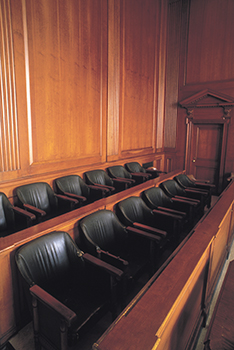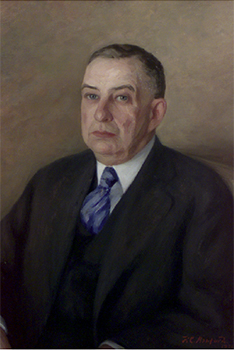 Good Ideas
Good Ideas
Reading Documents in the Digital Age: Paper Versus Screens
Kids today. How often do they read content on paper? It seems digital e-readers, tablets, smartphones, and computer screens are the preferred method for absorbing information. Older adults are moving in that direction, too.
But recent research suggests that reading paper documents is still the best way to comprehend material. For lawyers, that’s an important finding.
“When reading on screens, people seem less inclined to engage in what psychologists call metacognitive learning regulation – strategies such as setting specific goals, rereading difficult sections, and checking how much one has understood along the way,” according to an article in Scientific American titled “The Reading Brain in the Digital Age: The Science of Paper versus Screens.”
This research suggests that lawyers might gain better understanding of briefs, contracts, or other lawyerly writings when reading those documents on paper.
But what about your kids? It’s possible, the article notes, that “any discrepancies in reading comprehension between paper and screens will shrink as people’s attitudes [toward reading on screens] continue to change.”
By the Numbers
25,967
– The number of cases in which the Wisconsin Child Support Program established paternity in 2012, the last year in which data is available
In establishing paternity, the Child Support program obtains and enforces court orders for child and medical support.
A cooperative local, state, and federal effort, the Child Support Program ensures that both parents support their children. In 2012, the Wisconsin Child Support program established child support orders for 39,990 families.
 Source: Facts About Child Support, Wisconsin Department of Children and Families, Bureau of Child
Source: Facts About Child Support, Wisconsin Department of Children and Families, Bureau of Child
Support
Good Ideas
Thank a Juror This Month
Circuit courts statewide are celebrating the seventh annual Juror Appreciation Month in September by hosting a variety of activities to thank the tens of thousands of people who report to Wisconsin courthouses for jury service each year.
If you’re in Calumet, Dane, Manitowoc, Milwaukee, or Rock counties, look for banners, giveaways, treats, resolutions, PSAs, and special presentations as tokens of appreciation to jurors.
And, to support jurors experiencing stress resulting from exposure to graphic testimony after difficult or gruesome cases, the Wisconsin Crime Victims Council offers a new brochure that describes the signs of stress and offers suggestions on how to manage them.
“We ask a lot of jurors who serve on difficult cases,” says Attorney General J.B. Van Hollen. “It’s another toll that crime takes on society. Everyone handles such an experience differently.”
 This brochure, After Jury Service, assures jurors that it’s normal if they experience stress as part of their service. Find it at www.doj.state.wi.us/ocvs.
This brochure, After Jury Service, assures jurors that it’s normal if they experience stress as part of their service. Find it at www.doj.state.wi.us/ocvs.
Out There
Sneezy Suspension
A high school student in Tennessee was suspended for allegedly saying “bless you” after another student sneezed in class. Allegedly, the teacher told her that such talk was for church only.
The student told the teacher she had a constitutional right to say “bless you” based on her religious beliefs. School administrators say the student shouted “bless you” across the room and caused a distraction.
Looks like litigation is afoot. What is your take on this one?
 Source: wmcactionnews5.com
Source: wmcactionnews5.com
From the Archives
Justice Owen: Former Attorney General, Supported State Reform Laws
September marks the birthday of Wisconsin Attorney General and Wisconsin Supreme Court Justice Walter Owen. Owen was born in 1868. After practicing law in his native northwest Wisconsin, he was elected as a Progressive to the state Senate in 1906 and as attorney general in 1912. In 1915, Owen defended in the supreme court a forestry conservation law he had helped enact, but the court, speaking through Justice Roujet Marshall, overturned the law as an interference with property rights.
In 1918, Owen ran against Marshall, arguing that the court was out of step with the times, and defeated him. Owen remained on the court, where he consistently supported reform laws, until his death in 1934.
Source: Jay Ranney, Madison attorney and legal historian
Quotable
Lawyers fulfill their professional calling to its fullest extent when they rise above partisan debates and participate as problem solvers.”
– U.S. Supreme Court Chief Justice John Roberts, speaking at the American Bar Association’s Annual Meeting in August
 The chief justice also said lawyers can help ease partisan bickering by “helping the public understand the nature of the role that courts play in civic life, a role distinct from that of the political branches.”
The chief justice also said lawyers can help ease partisan bickering by “helping the public understand the nature of the role that courts play in civic life, a role distinct from that of the political branches.”
Chief Justice Roberts would be pleased to know that State Bar of Wisconsin members play an active role as both problem solvers and educators.
For instance, volunteer members educate the public and students about the court system through Our Courts Wisconsin and High School Mock Trial programs. Want to get involved? Contact Katie Wilcox at kwilcox@wisbar.org.
